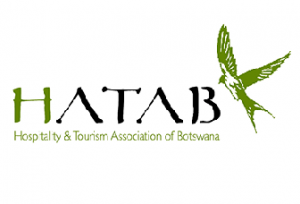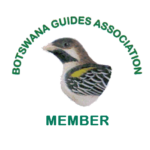Do’s and Don’ts in the Bush
We are looking forward to showing you the beauty of our country and its nature and wildlife.
Safari travel in Africa is exciting and awe-inspiring, beautiful and WILD!
With this in mind, it is important to know the facts surrounding your safety while travelling.
Here we give you a brief overview of what to look out for and how to behave in the bush:
Follow your guides instructions at ALL times.
Your guide is highly trained to read animal behaviour and other signs of the bush.
Please trust his/her skills and judgement to keep you safe in the wild.
Our guides have the right to end a game drive and return to camp any time for security reasons e.g. when his/her instruction is disregarded.
DON´T make sudden movements in the presence of animals.
This may frigthen the animals or trigger their instincts and may result in them retreating or attacking.
Stay seated at ALL times.
DON´T put anything out of the vehicle especially in the presence of animals.
This includes body parts such as hands and feet as well as items such as bags or camera equipment out of the vehicle.
In most reserves, animals have become habituated to the vehicles used – and their shapes. When you stand up or dangle arms or legs out of the vehicle, the animals may identify you as an individual. This may frigthen the animals or trigger their instincts and may result in them retreating or attacking.
Remain silent in the presence of animals.
While the animals have become accustomed to the sound of the vehicle/boat, human noise will disturb them, either making them run away or get angry. If you need to communicate at all (e.g. for security instructions and alarming others), try to do so in whispers.
Always stick to the Group.
DON`T explore the bush on your own.
We are in the wild with no fences or other boundaries. We are surounded by wild animals all the time. Even if we do not see them, they might be observing us.
Separating yourself from the group makes you their center of attention and you become an easy target
This includes the area around the campsite strating immediately behind the tents.
If you are in unknown territory (e.g. on gamedrives), your guide will check the area before you can leave the vehicle/boat.
Special attention has to be paid after sundown and before sunrise. Stick with the group in those times at the fire place or in your tent only. NO roaming around.
Please take pictures of animals WITHOUT using the flashlight of your camera or mobilephone.
Flashing light is not natural light.
Taking pictures with flashlight may frigthen the animals and may result in them retreating or attacking.
DON`T approach animals too closely.
Even those seemingly unconcerned by your proximity. Give them room to maneuver.
Bear in mind that most animals allow vehicles and boats to approach them much closer than people on foot. If you get out of your vehicle or walk towards animals they become more nervous- with unpredictable results.
It is illegal to get out of your vehicle in National Parks and Game Reserves, except in designated areas.
Never try to interfere – in any way – with the animals you encounter.
This includes trying to change their behaviour or position for a good photo shot.
DON´T feed the animals.
Also, never throw your remaining food in the park region. Due to this, animals become dependent on these edibles and over the time, they become a danger to the visitors when they are starving or wasn’t to catch a prey. Another reason states that feeding animals hamper their natural skills of hunting or finding the source of the food on their own. Sometimes, as a result of this, they also die because of starvation.
Should you encounter an animal on foot e.g. in the campsite: Freeze. Be silent and DON´T make sudden movements.
An animal that sees a creature running will presume that you are prey, or dangerous, and may try to attack you.
DON`T leave your tent during night and do make sure it is fully zipped.
Under NO circumstances open your front exit during night without a guide asking you to do so. You can use your en-suite bathroom but always light the bathroom with you rtorch before entering it.
Wear “neutral“ or bush colours especially on guided walks
such as khaki, olive green, gray and brown.
Camouflage might be considered a little excessive.
Avoid bright and shiny colours such as neon colours and bright white, red, orange, pink and similar.
DON´T use perfumes and/or strongly perfumed cosmetic products.
The scents might irritate the wildlife or attract bees and mosquitos.
Drink purified water only.
Though most of waters are regarded as safe for drinking, we recommend to stick to purified water such as the one that we supply during our tours.
DON´T store food / snacks on your own
especially not in the tents and especially no meat products.
If you brought any kind of groceries / snacks on the tour, please inform our team. They will store it safely for you.
This includes snacks and sweets. Even if they might seem okay to you all kind of foods (e.g. peanuts, fruits) attract animals and they might try to get into the tent to get to the food.
DON`T pick anything from the bush/parks.
Picking anything from the parks or carrying something in your car/luggage/pockets is regarded poaching and is prohibited by law.
This includes but is not limited to flowers and other plants, seeds, soil, stones, animal products (feathers, skin, skulls, etc).
Botswana is very strict on their conservation efforts. Fines are fast given and it can even end in a court case.
Special instructions for travelling with children:
- Parents are advised to repeatedly explain to children the above mentioned DO´s and DON´ts in the bush and ensure that they understood them.
- Guide and camp staff are available to ensure safety in camp. Parents are responsible for their children. Constant supervision is essential.
- All children under the age of 16 require an adult legal guardian to share the tent with.
- The youngest children have to be seated at the middle seats during any kind of activity.
We wish you a safe and enjoyable safari adventure.








